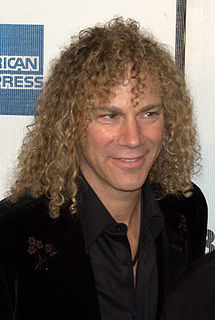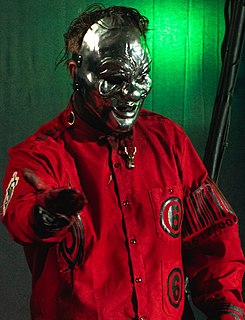A Quote by John F. Kerry
I came into public life during the 1960s when a whole bunch of us believed in our ability to change the world. And we did a lot of things.
Related Quotes
I think that you're smarter than we were, but we had two things: one is, in our naïveté we believed we could change the world. And number two, we believed that another world was possible. And once that belief took hold of some critical mass, a tiny minority nonetheless, but a critical mass of people, then the world did change.
When we feel we are powerless our ego most wants to change the things in our world. As we realize we have the power to change our reality the maturity that comes with that understanding changes us, and we find ourselves in acceptance of what is with less desire of feeling our need to change the world around us.
What if we truly believed that there is a beneficent order to things, a force that's holding things together without our conscious control? What if we could see, in our daily lives, the working of that force? What if we believed it loved us somehow and cared for us, and protected us? What if we believed we could afford to relax?
People said things they didn't mean all the time. Everybody else in the world seemed able to factor it in. But not Lena. Why did she believe the things people said? Why did she cling to them so literally? Why did she think she knew people when she clearly didn't? Why did she imagine that the world didn't change, when it did? Maybe she didn't change. She believed what people said and she stayed the same." (Lena, 211)
Two-thirds of Americans think our kids will have a worse life than we did. That is a powerful indication we are on the wrong path. I think we can change that, but I'll tell you, that's what I'm going to fight to do, and the reason so many grass-roots activists poured so much into it is they believed in our country. They believed in liberty.
For even if the whole world believed in resurrection, little would change until we began to practice it. We can believe in CPR, but people will remain dead until someone breathes new life into them. And we can tell the world that there is life after death, but the world really seems to be wondering if there is life before death.
I want to say to you is that James Madison and Thomas Jefferson did not intend to drive a stake in the heart of religion and to drive it out of our public life. What they intended to do was to set up a system so that we could bring religion into our public life and into our private life without any of us telling the other what to do.
We will continue our journey to our destination of peace and education. No one can stop us. We will speak up for our rights and we will bring change to our voice. We believe in the power and the strength of our words. Our words can change the whole world because we are all together, united for the cause of education. And if we want to achieve our goal, then let us empower ourselves with the weapon of knowledge and let us shield ourselves with unity and togetherness.
































